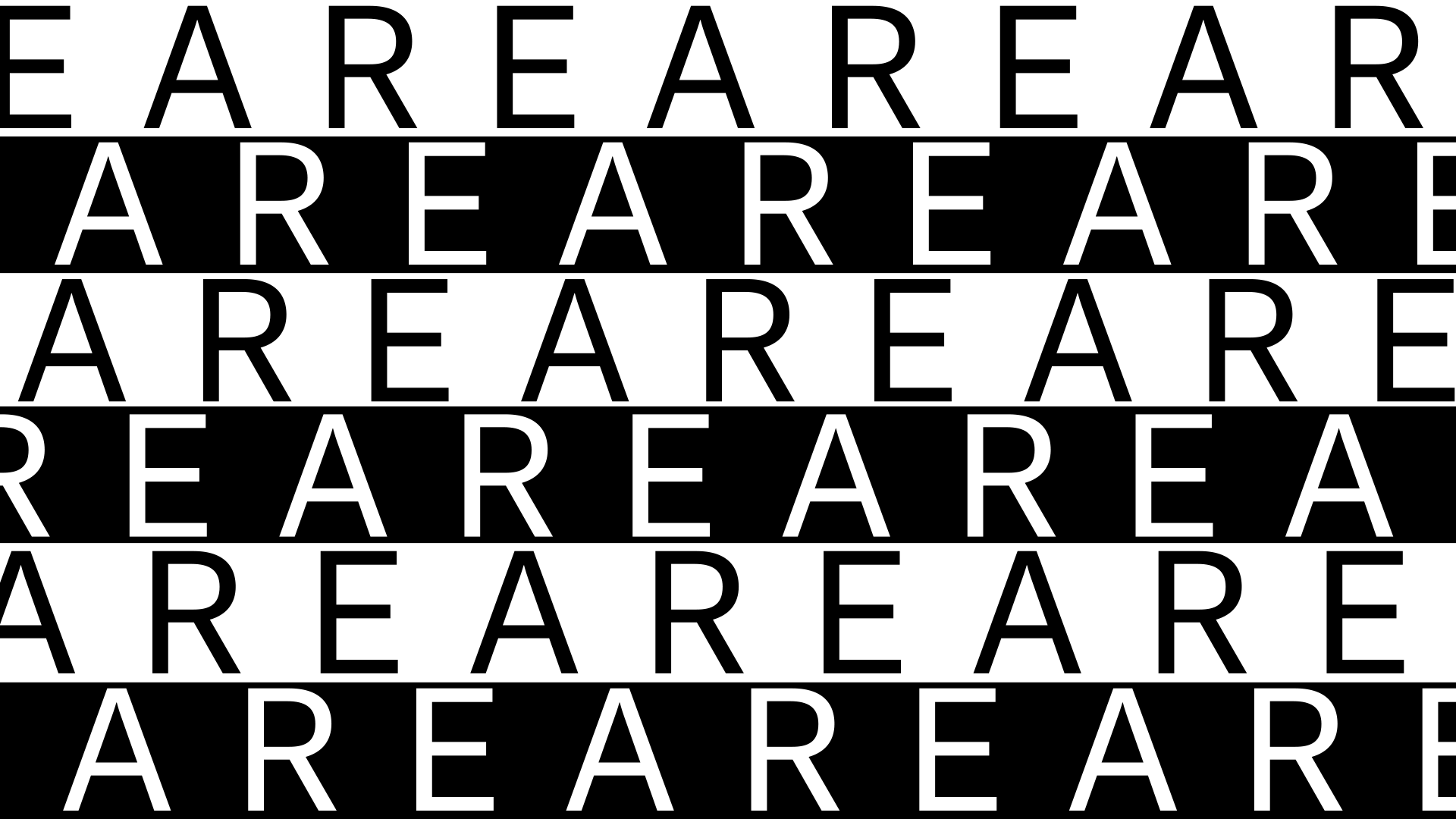UNTRAINING THE EAR:
Listening session n°4
Udlot Udlot by José Maceda
Workshop 01.09.2018 11:00–18:00
Performance 01.09.2018 19:00
Followed by a conversation between Dayang Yraola, Marie-Luise Calvero and Lynhan Balatbat-Helbock
WITH Dayang Yraola and Marie-Luise Calvero
Venue Archive Books Müllerstraße 133 13349 Berlin
The workshop is conceived for 36 participants. Please send a short message telling us about your motivation for participating and your background, with subject line “Udlot Udlot” until 25.08.2018 to
listeningsessions@savvy-contemporary.com
FEE Free of charge and the participants will get to keep the instrument with which they will perform
WHAT HAS ALL THIS GOT TO DO WITH COCONUTS AND RICE?
Maceda101: A Listening Exhibition on Jose Maceda
Exhibition
Opening 28.08.2018 19:00
Opening Hours 29.08.–06.09. 2018 Every day 14:00–19:00
Venue Archive Books Müllerstraße 133 13349 Berlin
All events are accessible by wheelchair.
Curation Dayang Yraola, Kamila Metwaly
CONDUCTOR Marie-Luise Calvero
Co-Curation Marcus Gammel, Jan Rohlf
Production Beya Othmani, Ola Zielińska
Communication Jasmina Al-Qaisi, Anna Jäger
Visuals Elsa Westreicher
ART HANDLING Wilson Mungai, Kimani Joseph
TECH Bert Günther
Management Lema Sikod, Lynhan Balatbat-Helbock
Special thanks to UP Center for Ethnomusicology and Archive Books
Collaborators Deutschlandfunk Kultur and CTM Festival
ON AIR Klangkunst by Deutschlandfunk Kultur, presented by Esther Schelander
Support Musicboard Berlin
Media Partner Norient
For UNTRAINING THE EAR LISTENING SESSION N°4, SAVVY Contemporary, Deutschlandfunk Kultur and CTM festival present a special archival exhibition and a workshop and performance-based listening session on the works of the experimental musician and maverick composer José Maceda (1917–2004).
Considered as "one of the most significant creative musicologists of our times" [1] and a composer who "wondered how that (Western) music connected to their (South and East Asian) lives" [2], José Montserrat Maceda is one of the most fundamental contemporary music composers of our modern times. Known for his interdisciplinarity, Maceda has composed grande musical works for Filipino instruments and he worked years in the field of ethnomusicology. He has extensively researched in Paris around the early understanding and formulation of Musique Concrete, working with Pierre Boulez and Iannis Xenakis. Maceda experimented with recording and playback technology which has led him to composing works for 20 radio stations, producing 100 cassette tapes with the use of indigenous instruments, reformulating the understanding of traditional contemporary music in the Philippines and the world. It would be insufficient to limit Maceda to the above mentioned, as the composer’s long years of work and experimentation stretch over a span of at least sixty years.
Workshop & Performance
For this rare and special event, we focus on one of Maceda's masterpieces: "Udlot-Udlot" which was composed originally for 100 performers and performed in Berlin eleven years ago. We will reenact it, also in Berlin, with 36 performers as a part of our continuous endeavour of Untraining the Ear. We invited students, sound practitioners, and enthusiasts, curious to engage with Maceda’s sonic archives, to process and unravel his experimentations with sound and music in the field of avant garde Philippine electroacoustic scenes, experimental compositions for indigenous and native instruments, and the philosophy behind his works.
This workshop is hosted by Hong-Kong/Manila based curator Dayang Yraola who has worked for many years on re-phrasing Maceda's legacy and remapping his works back into the contemporary history of experimental music and sound scenes around the world. The performance will be led by the composer Marie-Luise Calvero who is deeply acquainted with the musical compositions and techniques of Maceda's works.
A special collection of flutes, tongatong, balingbing and bangibangs is currently being hand-built for the performance in Manila, and will be shared with the participants to rehearse, perform but also familiarise with Filipino musical aesthetics raised through the experimentations found in Maceda's compositions.
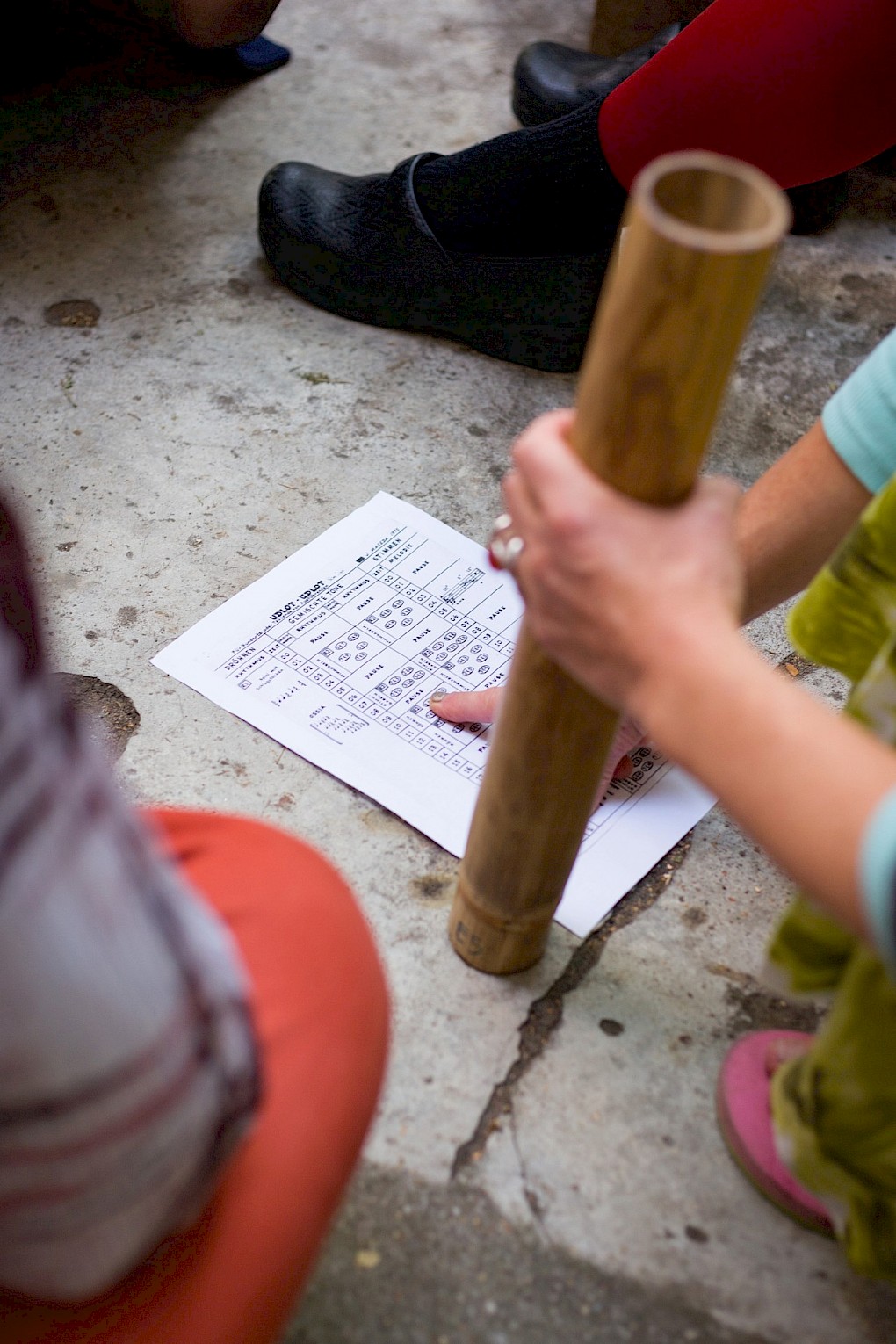
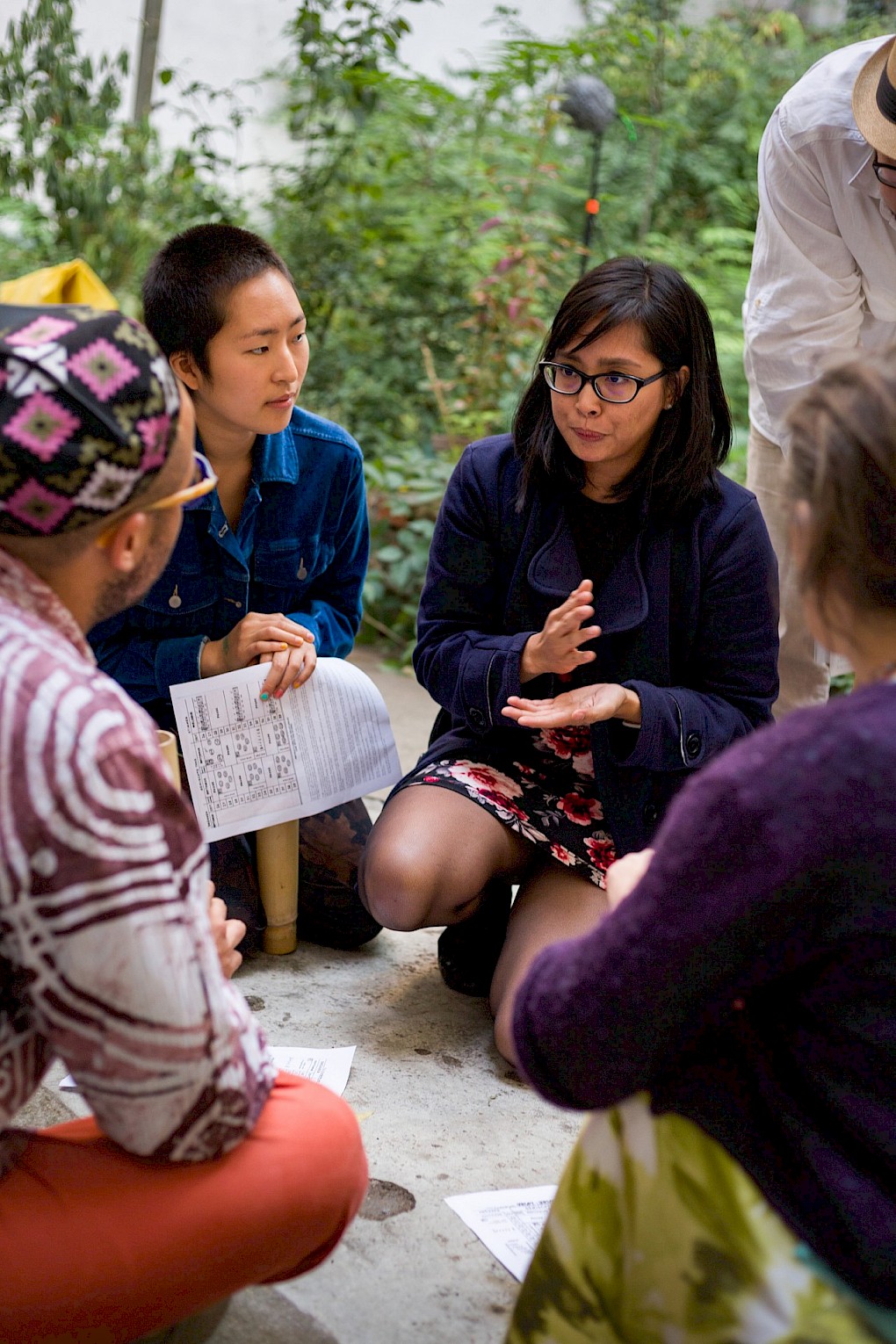
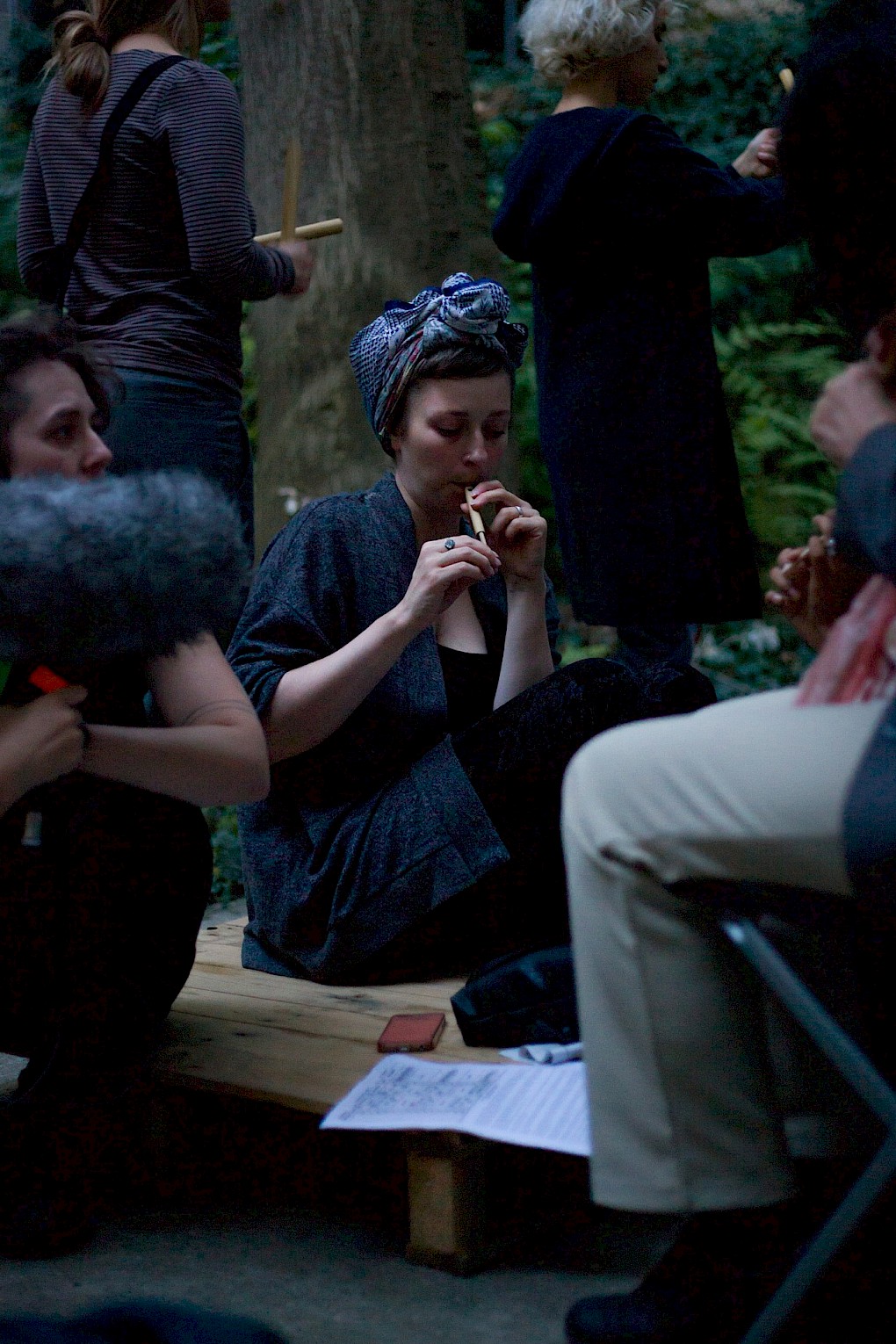
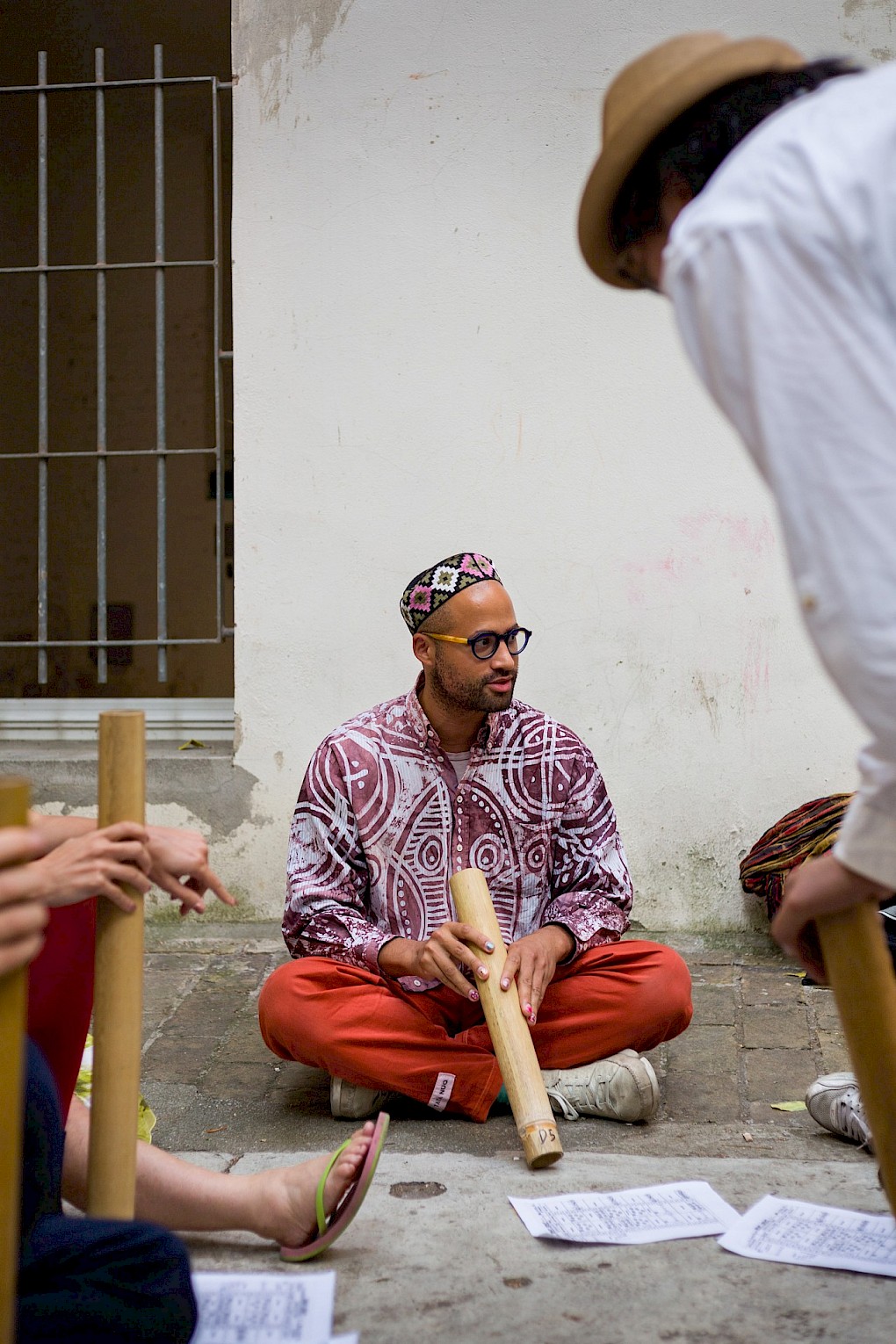
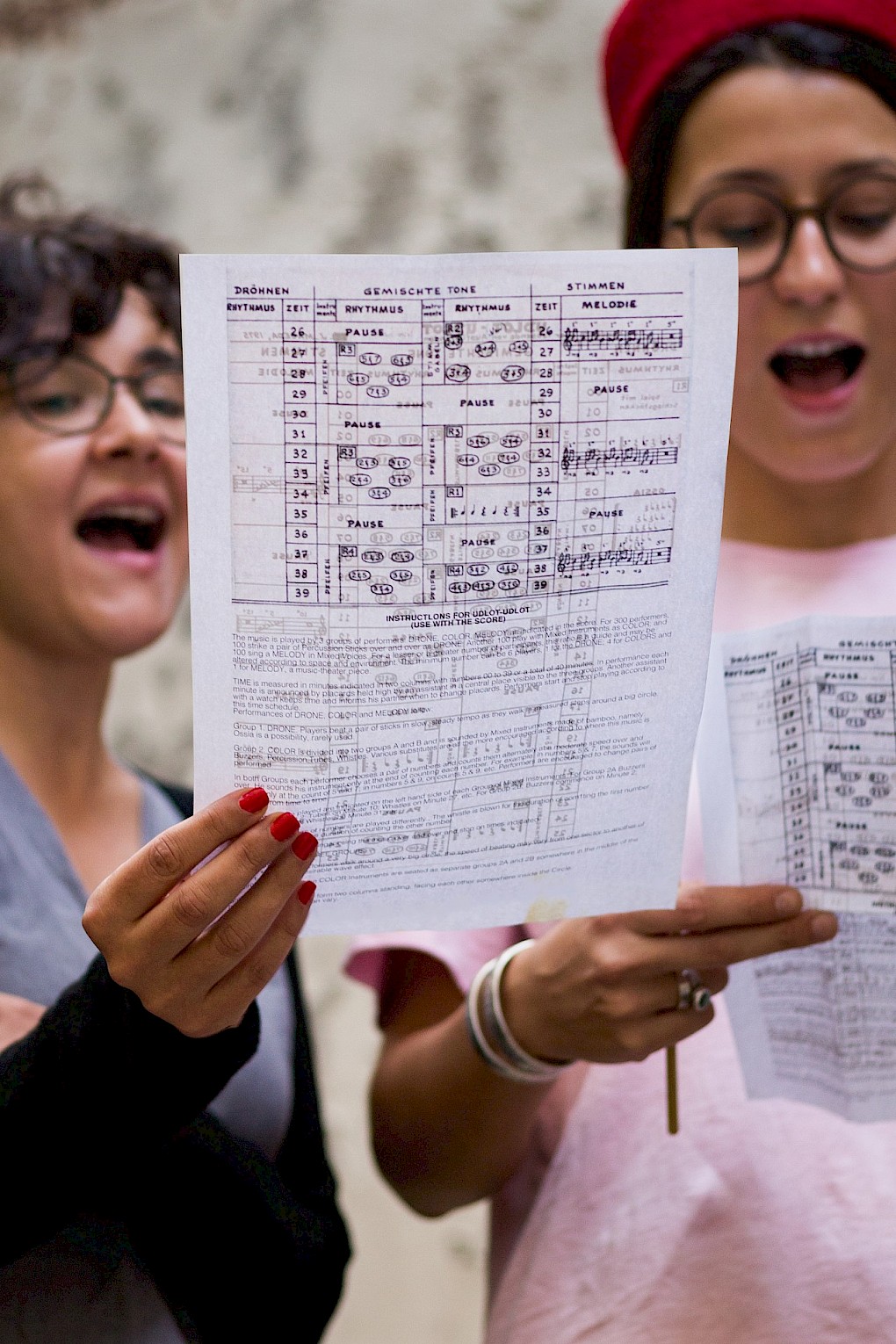
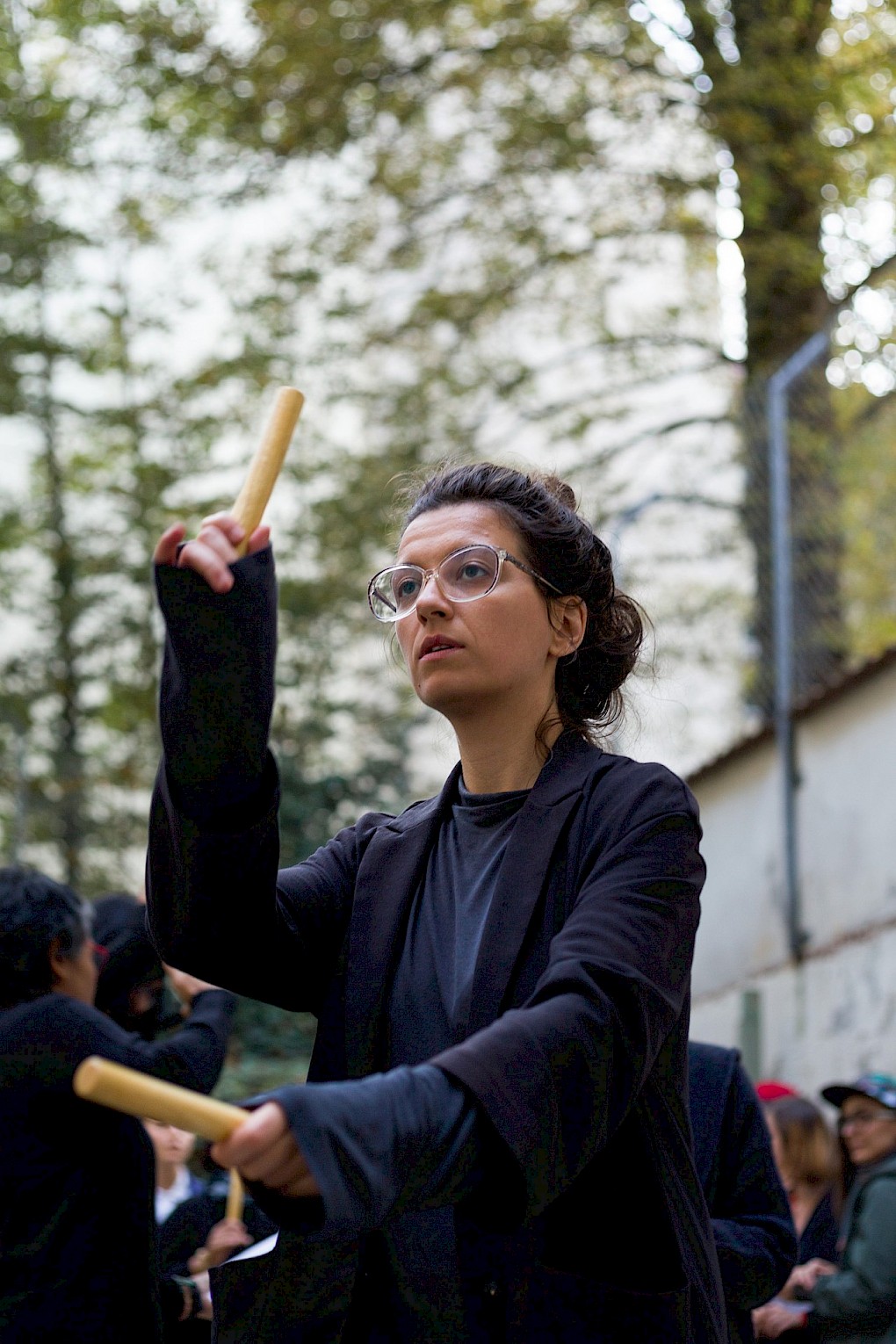
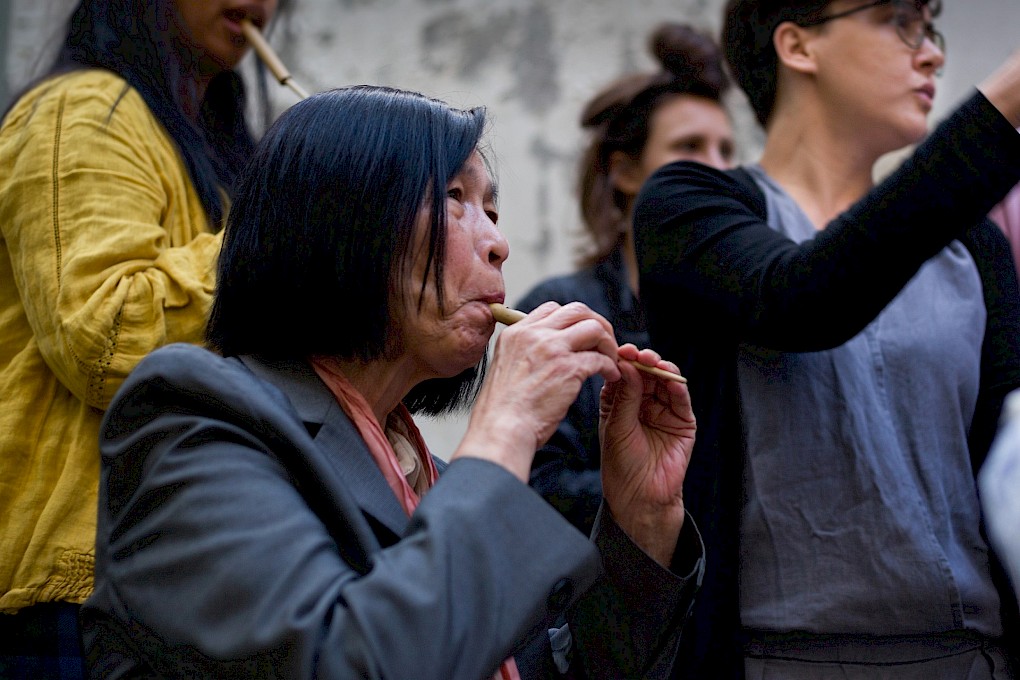
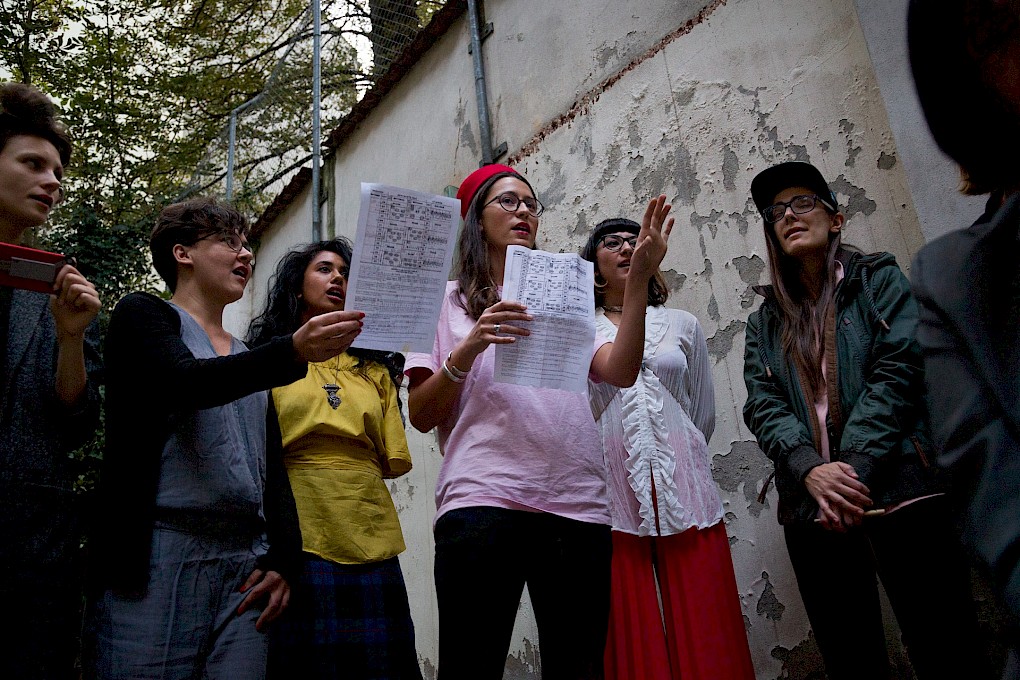
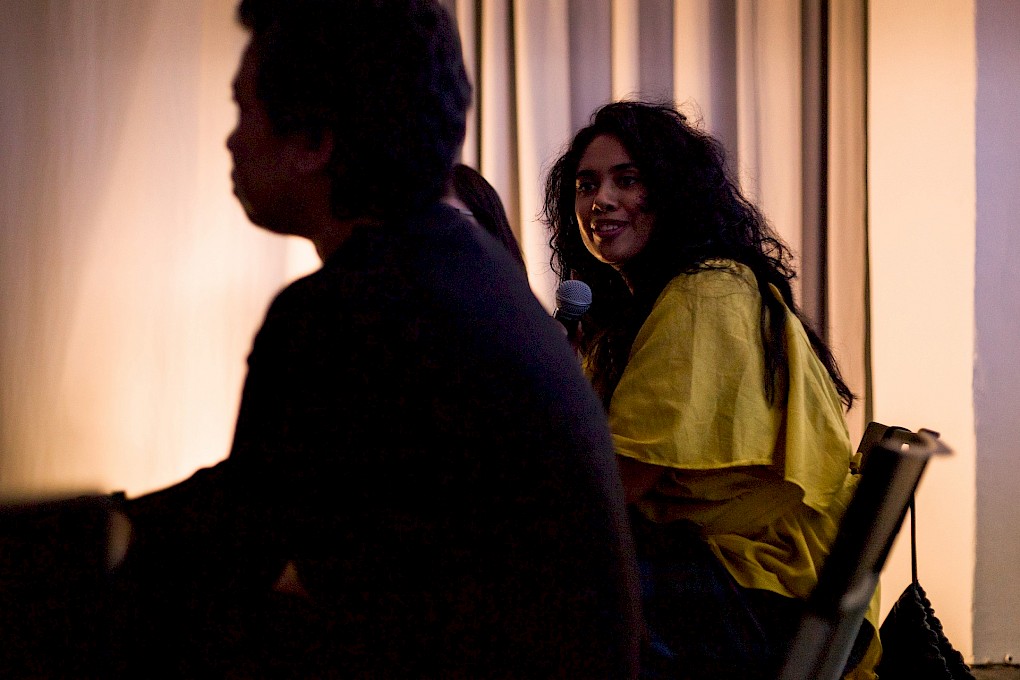
Exhibition
This exhibition is the first archival listening session in the Untraining The Ear program. For this occasion, we have invited the curator Dayang Yraola who has been one of the key figures behind the preservation and revival of Jose Maceda's legacy starting with “Maceda100” (2017) which included a program of exhibitions, performances, symposia and field work. Yraola has made an extensive effort and spent many years researching, understanding, contextualizing and re-mapping Maceda's legacy back into the contemporary.
The phrase ‘Attitude of the Mind’ served as guiding philosophy when organising the Maceda centennial program in 2017, directing Yraola in thinking through how and what it means to exhibit Maceda. Taking the other half of the marching order – WHAT HAS ALL THIS GOT TO DO WITH COCONUTS AND RICE? Maceda101: A Listening Exhibition on Jose Maceda – asks in simple terms what is it that we are going to do? What we are doing now is an exhibition that would allow us to reflect on different attitudes of mind that have engaged with Maceda's knowledge and particularly on exhibiting Maceda. This simple, yet extremely sophisticated, proposition becomes a cue for our exhibition project in which we - the space, the listeners, the performers, the exhibitors - inquire one another to hear beyond the deeply embedded constructs found in our acoustemology, in the attempt to cut loose of our conditioned ears, and to listen more attentively, more inclusively.
This exhibition walks us through an archival display of Maceda's work throughout the years in four modules in form of listening terminals and archival displays. Each module focusing on a specific philosophy of Maceda's work. First two modules contain works that are coming from past Maceda exhibitions that Yraola has curated, namely “Listen to my Music” (2013) [3], the first exhibition ever curated on Maceda and “Attitude of the Mind” (2017), the first extensive exhibition about Maceda that was curated outside the University of the Philippines. The third module focuses around documentary materials from his visits to Germany in the years 1964 (Berlin), 1980 (Bonn) and 1984 (Bonn). Finally, the fourth module focuses on one of Maceda's masterpieces: Udlot-Udlot, which was originally composed for 100 performers and performed in Berlin eleven years ago, and which we reenact on 01.09.2018 in Berlin, with 36 performers, as a part of our continuous endeavour of Untraining the Ear.
Yraola developed a familiarity with the artist's oeuvre as the Archivist and Collections Manager in charge of the digitisation of the whole Maceda collection from 2007-2015. In her conceptual framework for this exhibition, Yraola notes that “beyond the importance of preservation of indigenous cultures, Maceda’s legacy is strongest in the philosophical grounds – in critically and compassionately, understanding creative processes in production of cultures, traditions, knowledges, whether within the realm of the indigenous or the institutional.”
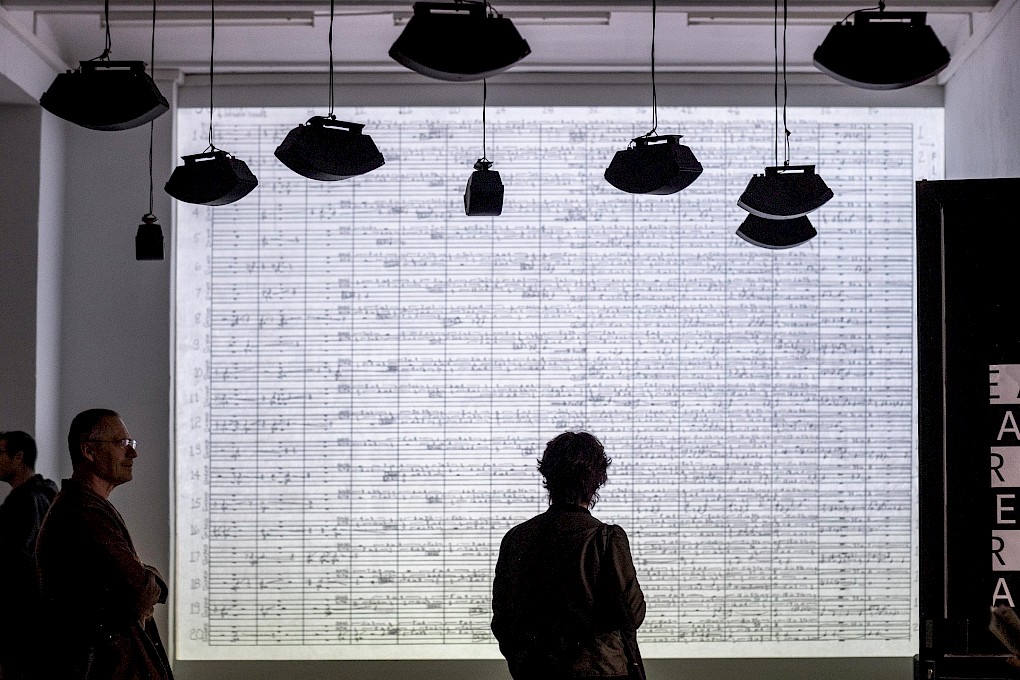
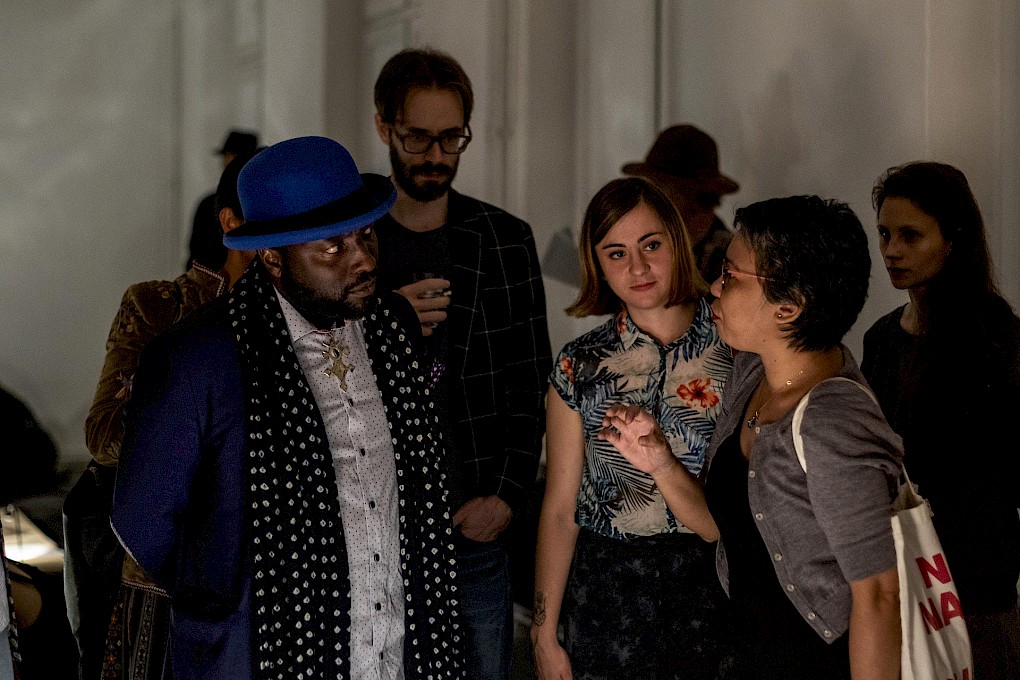
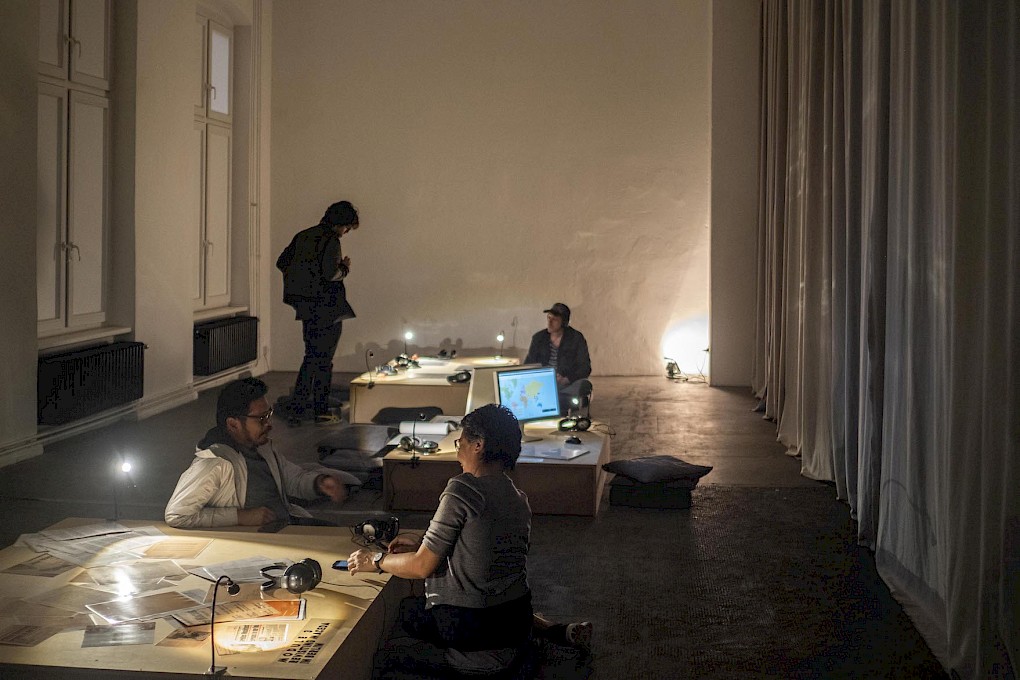
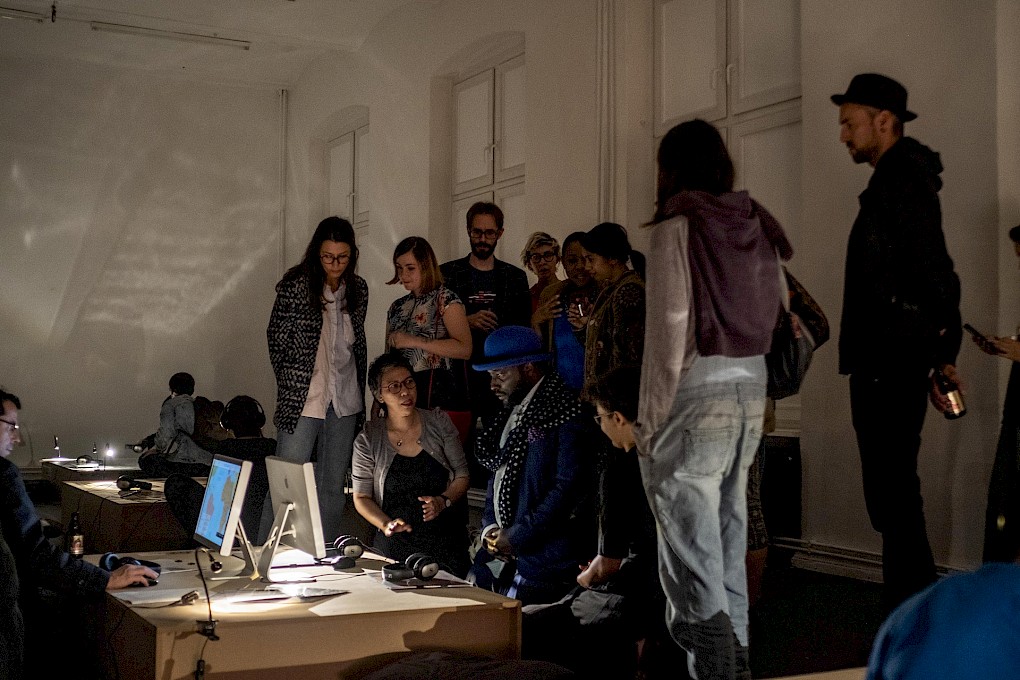
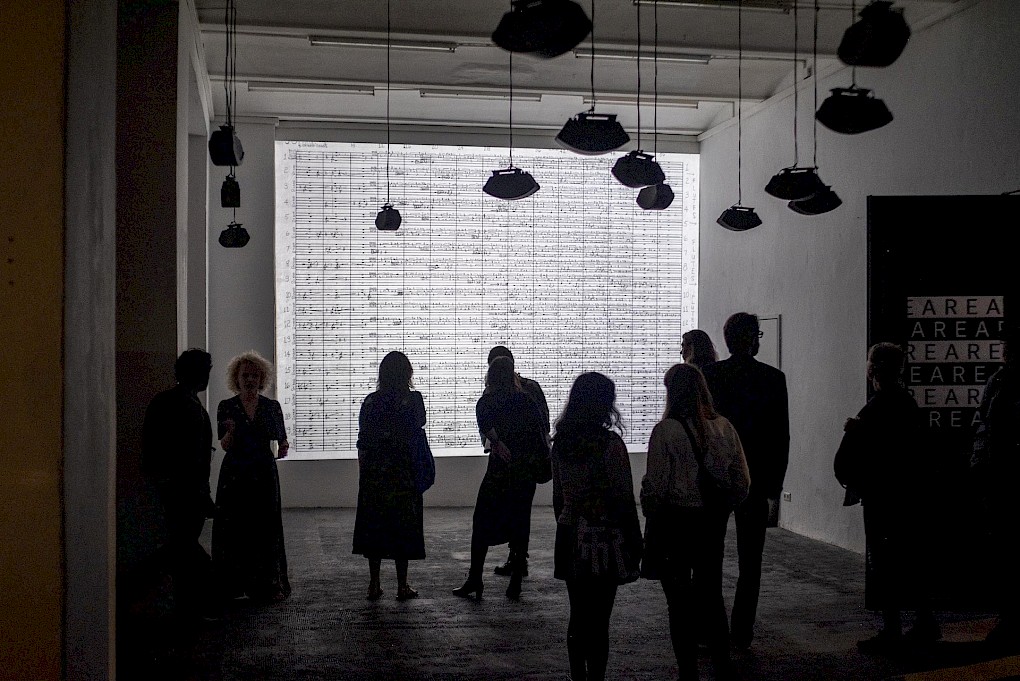
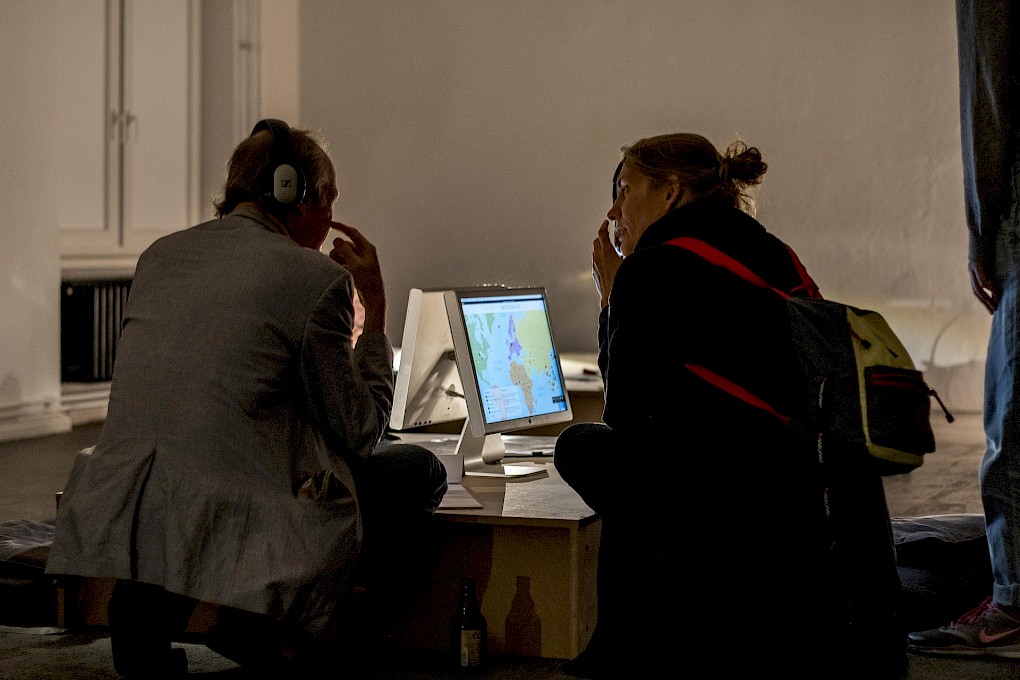
[1] Euba, Akin. J.H. Kwabena Nketia: Bridging Musicology and Composition: A Study in Creative Musicology . Music Research Institute, MRI, 2014.
[2] Tenzer, Michael. “José Maceda and the Paradoxes of Modern Composition in Southeast Asia.” Ethnomusicology , vol. 47, no. 1, 2003, pp. 93–120. published by: : University of Illinois Press on behalf of Society for Ethnomusicology
[3] Taken from a longer quotation: "The man behind the music is not important. If you wish to honour me, listen to my music." From an interview of José Maceda with Rodolfo A.G. Silvestre, "Musician and Father", Sunday Inquirer Magazine, 24.08.2003.
José MACEDA is known for his interdisciplinary works that have been performed throughout the world. He began his musical career as a concert pianist in the 1930's, and completed his PhD in ethnomusicology in 1968 joining the faculty of the University of the Philippines and amassing the largest collection of indigenous filipino music known to date. Maceda also worked with, both personally or cooperatively, traditional musics from other parts of Southeast Asia and has conducted field music research throughout the Philippines, Eastern and Western Africa, Brazil, China, Indonesia, Malaysia, Myanmar, Thailand, and Vietnam.
DAYANG YRAOLA is a curator based in Manila and Hong-Kong. She curated Maceda100 exhibition at the University of Philippines Center for Ethnomusicology in 2017 as well as a series of exhibition, talks and performances in 2018 titled Maceda 101. She received her Bachelor of Arts in Philippine Studies majoring in Literature and Art Studies, and a Masters in Museum Studies from the University of the Philippines. She was a fellow of Thomas Jefferson Foundation in 2001; an arts associate of the National Art Gallery Singapore through Singapore International Foundation in 2010; and a grantee of the Asian Cultural Council in 2012.
MARIE LUISE CALVERO is a composer from the Philippines. She finished her Master's degree in Film Music at the Institut für Neue Musik (Institute of New Music) of the Staatliche Hochschule für Musik (State Conservatory of Music) in Freiburg, Germany under composer and film music expert Cornelius Schwehr. Her ongoing projects include collaborations with Filipino filmmaker Rap Ramirez, and the Zwetajewa entrum Freiburg for a film on Russian novelist Ivan Turgenev. Marie-Luise is also a member of the Manila Composers Lab - an organization of Filipino composers who, in confluence with various performing groups and international artists, organizes and conducts laboratory sessions where participant composers are able to try out ideas and techniques with performers.
Lynhan Balatbat-Helbock is a curator and researcher at S A V V Y Contemporary Berlin and is part of the participatory archive project Colonial Neighbours. She received her MA in Postcolonial Cultures and Global Policy at Goldsmiths University of London and moved to Berlin in 2013. In her work within the permanent collection of SAVVY Contemporary she looks for colonial traces that are manifested in our present. Most recently, she assisted the management for the documenta14 radio program Every Time a Ear di Soun, SAVVY Funk in Berlin (June - July 2017). Lynhan supported the artist Bouchra Khalili with several projects and exhibitions (May 2015 - May 2016) and worked on a year long research project in collaborations between SAVVY Contemporary and the Maerzmusik festival (Berliner Festspiele, March 2017-2018). She is currently supporting the production of Agnieszka Polska´s new commission for the upcoming Germany’s National Gallery Prize show in the Hamburger Bahnhof in Berlin (September 2018).
In the attempt of UNTRAINING THE EAR, SAVVY Contemporary, Deutschlandfunk Kultur and CTM Festival suggest an alternative way to listen to music and sound through a yearlong series of events split into six Listening Sessions. We invite up-and-coming Berlin based, international musicians and composers, to perform a sixty-minute long program of an uninterrupted listening session preceded by a moderated conversation between performers, curators and listeners. These sessions premier live at SAVVY Contemporary and for the first time on air at Deutschlandfunk Kultur.
Moreover, in order to contextualise how we listen to the world today we also need to replay the past of abounding sonic references. We (the audience, the performers, the space, the radio, the moderators and the technicians) will rhetorically navigate through archives of maverick composers in the attempt to reindex their contributions, to create other possible genealogies and narratives. By involving sound practitioners coming from diverse genres to perform, and experts to discuss works of the composers, we listen back to the influence and ingeniosity of musicians and sound artists who defy the linearity of 20th century avant-garde music history. We would like to shed light on and unbox works of pioneers such as Halim El-Dabh, Eliane Radigue, José Maceda to mention a few. We will also commission new works to echo and reflect (with a contemporary take) rare archival body of works that have been marginalised by history of avant-garde music and sound art.
[Teaser Image: Courtesy of Jose Maceda Collection at the University of the Philippines Center for Ethnomusicology.]

